Master in Business in Europe
Online Professional Master in Business in Europe ( )
)
The Master in International Business specialization in Business in Europe taught by EENI Global Business School is designed to offer a global and practical vision on:

- The complex functioning of the EU (EU Institutions, Single Market, Customs Union...), Doing Business in the EU markets (France, Germany, Italy, Croatia, Romania, Greece, Spain...), EU International Relations (EU Foreign Policy, free trade and association agreements), the BREXIT, how to export to the EU or import from the EU.
- The European Free Trade Association (EFTA) and the Central European Free Trade Agreement (CEFTA) countries
- The European, Orthodox and Eurasian Economic Areas
- Russia as the central state of the Orthodox Civilization
- The Eastern European Markets and Turkey
 Enrol / Request for Information
Enrol / Request for Information

Language of the Master: 
- Also available in For improving the international communication skills, the student has free access to the learning materials in these languages (free multilingual training). The student can review the subjects in whatever language and use one of the four languages as a vehicular language of the campus and to complete the exercises. The student can do the exercises, thesis or communicate with professors in English, French, Spanish or Portuguese.
 Master Negocios Internacionales
Master Negocios Internacionales  Master en affaires internationales
Master en affaires internationales  Mestrado em Negócios Internacionais.
Mestrado em Negócios Internacionais.
The students who have taken this master can validate and register for the Doctorate in European Business. Moreover, they only need to complete the research methodology module, Thesis, and other modules are not studied in this Master. In this case, the total amount of the doctorate will be € 2,000.
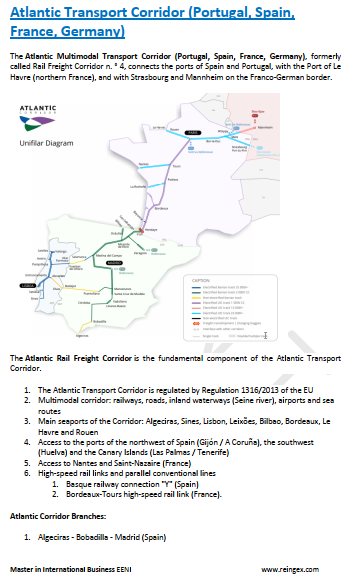
The objectives of the Master are:
- To understand how the EU works and the role of its main institutions
- To understand the functioning and implications of the European Single Market
- To know the causes and effects of the BREXIT
- To explore the business opportunities in the countries of the EU
- To analyze Foreign Trade and foreign direct investment in Europe
- To learn about the international relations and Free Trade Agreement (FTA) of the EU
- To know how to export to the EU and import from the EU
- To design a business plan for the markets of the EU
- To know the business opportunities in the Russian market
- To analyze the business opportunities in the EFTA, CEFTA, Eastern Europe countries and Turkey
- To understand the influence of Christianity on the Business in Europe
- To learn How to avoid corruption in business
Master intended for all those wanting to specialize in all the aspects related to the functioning of the EU, its internationals relations and and business in the European Markets.
A Professional Master in Business in Europe that fits your schedule and helps you to get a better job.
The Master in Business in Europe taught by EENI consists of 18 modules:
- Introduction to the EU (PDF) (structure). EU Institutions (3 ECTS)
- Single Market of the EU (PDF) (structure) (4 ECTS)
- EU Founding Countries (1951) (11 ECTS)
- Business in Germany, Belgium, France, Italy, Luxembourg and the Netherlands
- EU Countries of the first four enlargements (1973-1995) (12 ECTS)
- Business in Denmark, Greece, Spain, Portugal, Austria, Finland and Sweden
- EU Countries of the last enlargements (2004-2013) (13
ECTS)
- Business in the Czech Republic, Cyprus, Latvia, Lithuania, Hungary, Malta, Poland, Slovakia, Estonia, Slovenia, Romania, Bulgaria and Croatia
- UK (BREXIT)
- International Relations of the EU (PDF) (structure) (agreements) (8 ECTS)
- Export to the EU. Import from the EU(PDF) (structure) (2 ECTS)
- European (PDF), Orthodox (PDF) and the Eurasian (PDF) Economic Areas (6 ECTS)
- European Institutions (2 ECTS)
- Christianity (Catholicism, Protestantism, Orthodoxy) and Business in Europe (PDF) (structure) (6 ECTS)
- Business in Russia (PDF) (structure) (12 ECTS)
- Business in the countries of the European Free Trade Association (EFTA) (PDF) (structure) (9 ECTS)
- Business in the countries of the Central European Free Trade Agreement (PDF) (structure) (CEFTA) (9 ECTS)
- Business in the countries of Eastern Europe and Turkey (PDF) (structure) (7 ECTS)
- Key concepts related to the international trade
- No corruption in business (PDF) (structure)
- Thesis of the Master (10 ECTS)
ECTS = European Credit Transfer and Accumulation System
Analyzed Markets in the Master in Business in Europe:
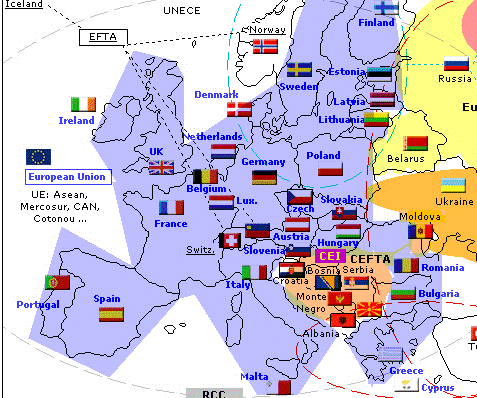
Modules and Subjects of the Master in Business in Europe
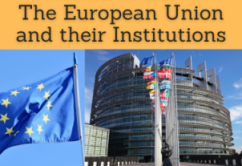
Module - Introduction to the EU and their Institutions (PDF).
Introduction to the EU
- Objectives, organization and functioning of the EU
- Introduction to the Community law principles
- Economy of the EU
- Political and economic impact of the BREXIT
- Economic Profile of the EU member countries
- The EU Structural and Investment Funds
- The EU as a member of the European Economic Area (PDF)
Institutions of the EU.
- European Council: the political institution of the EU
- European Commission: the executing agency
- European Parliament: the legislative institution
- EIB: the financial body
- The role of the Court of Justice and Court of Auditors of the EU
- European Economic and Social Committee
- Committee of the Regions
- Decentralized Agencies of the EU
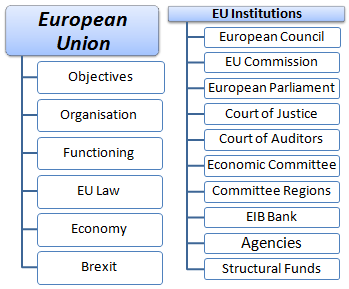
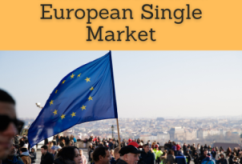
Module - European Single Market.
- European Single Market: free movement of goods, persons, services and capital
- Services Directive: removing all the Barriers to the trade in services to complete the Single Market
- European Digital Single Market: promoting the intra-European digital trade liberalization
- Economic and Monetary Union as one of the pillars of the EU Single Market
- European Central Bank as the financial stability guarantor
- EU Customs Union: abolition of the EU Customs and a common position with the third countries
- Taxation in the EU single market
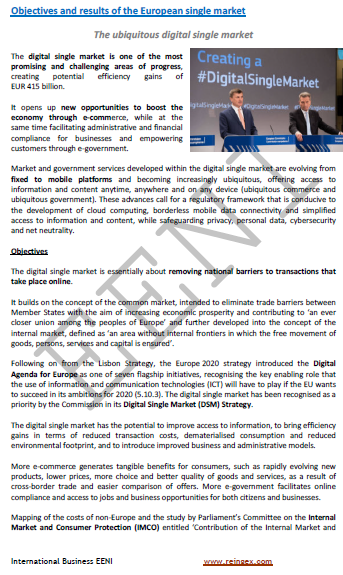
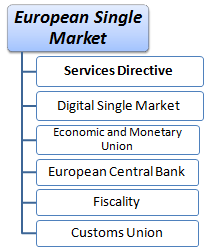
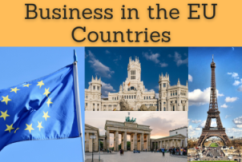
Module - Doing Business in the founding countries of the EU (1951).
- Germany: the economic engine and political leader of the EU
- Belgium: the political centre of the EU
- France: the third EU economy and a natural bridge with the Francophone Africa
- Italy: the fourth European economy
- Luxembourg: an important financial centre of the EU
- Netherlands: the largest port in the EU (Rotterdam)
Module - Doing Business in the EU Countries of the first four enlargements (1973-1995).
- Denmark: one of the richest and least corrupt countries
- Ireland: The European digital communication centre
- Greece: The largest merchant marine in the world
- Spain: the EU fifth economy and a natural bridge with Latin America (Iberian America)
- Portugal: a natural bridge with the Portuguese-speaking Countries
- Austria: The eleventh EU economy
- Finland: a highly industrialized economy based on a welfare state
- Sweden: technological innovation and services
Module - Doing Business in the EU Countries of the last enlargements (2004-2013)
- Czech Republic: a highly exporting country. Importance of the automotive sector
- Cyprus: The world's fourth maritime fleet
- Latvia: high human development
- Lithuania: high economic growth and ease of doing business
- Hungary: The largest mobile phone manufacturer in the EU
- Malta: a strategic place in the Mediterranean
- Poland: The largest market in Central Europe
- Slovakia: The importance of the automobile manufacturing
- Estonia: The most digital European country
- Slovenia: a generic pharmaceuticals exporter
- Romania: an agricultural export producer
- Bulgaria: The importance of the metallurgical sector
- Croatia: The last country that has joined the EU
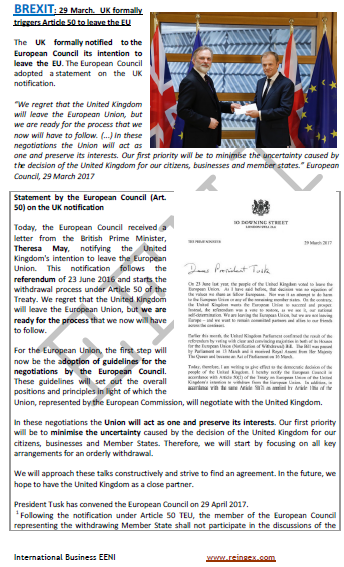
The Case of the United Kingdom after the BREXIT.
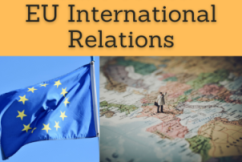
Module - International economic relations of the EU.
- Foreign Policy and Trade Relations of the EU
- The EU diplomatic corps: European External Action Service
- European Neighborhood Policy with the the Southern Mediterranean and Eastern European Countries
- Eastern Partnership with the Eastern Europe and South Caucasus countries
- Euro-Mediterranean Free Trade Area (EUROMED)
- The EU Policy for the South Caucasus
- The EU Policy for the Western Balkans
- Enlargement strategy of the EU
- Black Sea Synergy
- The EU Generalized System of Preferences (GSP) for the Developing Countries
- Foreign Trade of the EU
- EU-CELAC Summit
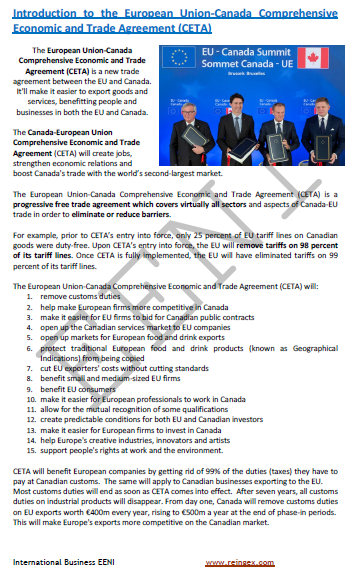
- Relations with the EU strategic partners:
- European Union-America:
- Mexico
- Andean Countries (FTA with Colombia and Peru)
- Central America
- Chile
- MERCOSUR
- CARIFORUM
- European Union-Europe:
- European Union-Africa (EU-Africa Strategic Partnership)
- European Union-Arab Countries:
- European Union-Asia:
- Singapore
- ASEAN
- Vietnam
- Kazakhstan
- Papua New Guinea
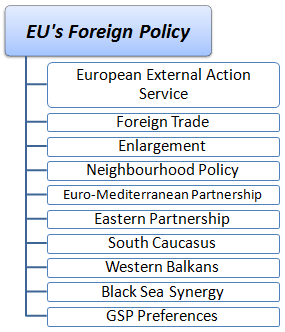
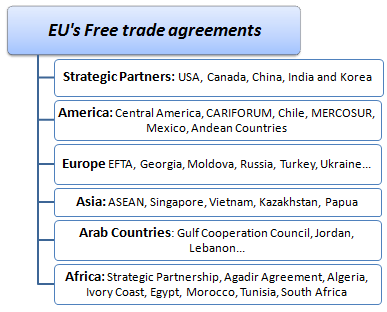
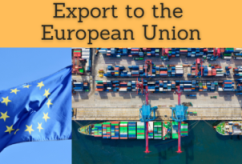
Module - Export to the EU. Import from the EU
- How to Export to the EU or import from the EU
- New Customs Code of the EU
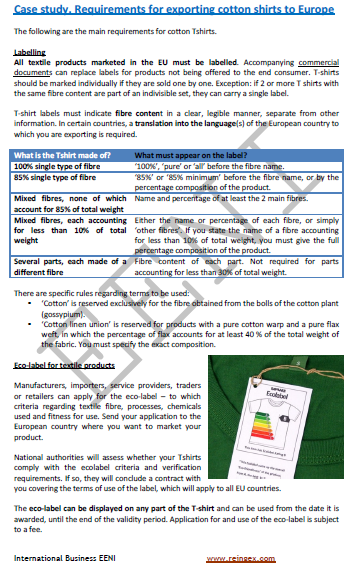
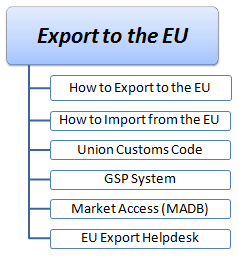
Module - European Economic Areas:
- European Economic Area (PDF)
- Orthodox Economic Area (PDF)
- Central Eurasian Economic Area (PDF)
European Economic Organizations:
- UNECE
- Regional Cooperation Council (CCR)
- OSCE

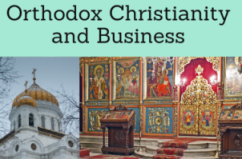
Module - Christianity and Business in Europe
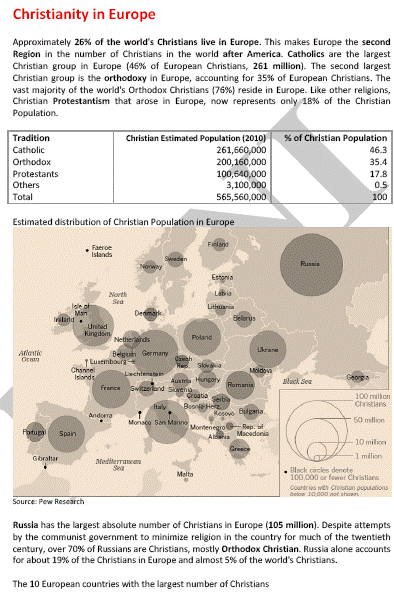
- Christianity and Business in Europe (PDF)
- Christianity in Europe
- Catholicism
- Protestantism
- Anglican Church
- Orthodoxy (PDF)
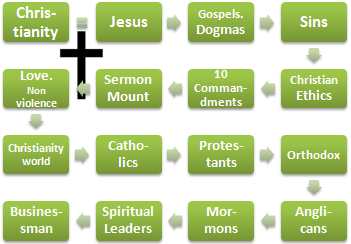
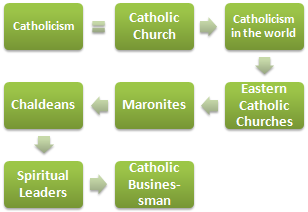
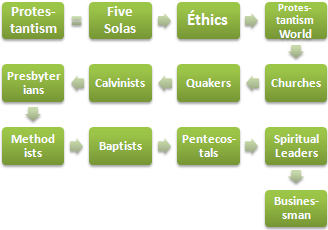
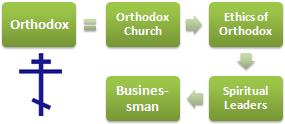
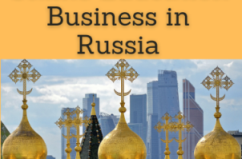
Module - Business in Russia (PDF).
- Introduction to the Russian Federation
- Economy, international trade and the foreign direct investment in Russia
- Russian payment system
- Ports of Russia
- Russian businessmen: Vladimir Potanin, Elena Baturina, Alexander Lebedev
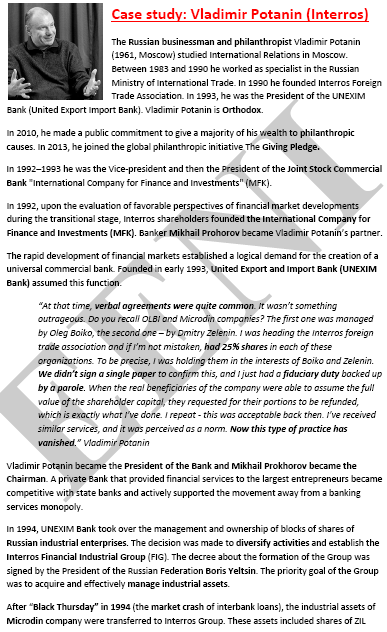
International Relations of Russia
- APEC
- Union Belarus-Russia
- Eurasian Economic Union
- Commonwealth of Independent States (CIS)
- Shanghai Cooperation Organization (SCO)
- EU-Russia Trade Relations
- Andean Community-Russia
- ASEAN-Russia Business Forum
- Africa-BRICS country (Russia is a member of the BRICS)
- Customs Union between Russia and Vietnam
- Russia has Trade Agreements with Armenia, Belarus, Azerbaijan, Georgia, Kyrgyzstan, Serbia, Moldova, Ukraine and New Zealand
- Russia-Belarus-Kazakhstan agreement
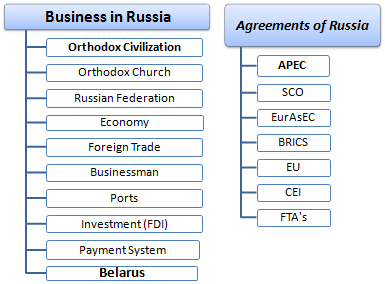
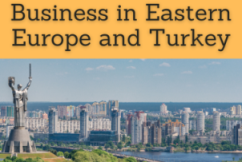
Module - Business in the Eastern Europe Countries and Turkey.
(PDF).
- Armenia
- Azerbaijan
- Belarus
- Georgia
- Ukraine
- International relations of the Eastern Europe Countries with the EU
- EU-Turkey Customs Union
- A key player in the region
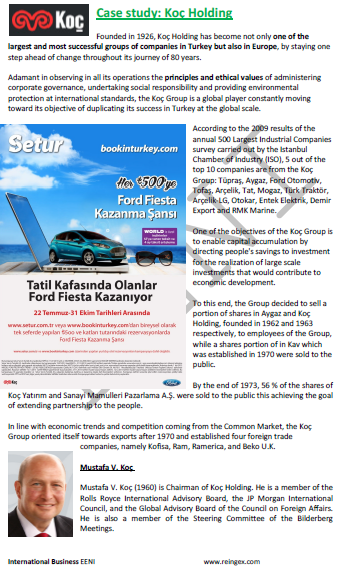
Economic organizations and trade agreements in the region:
- Commonwealth of Independent States (CIS)
- Organization for Economic Cooperation (ECO)
- Regional Organization for Democracy and Economic Development (GUAM)
- Council of the Baltic Sea States
- Eurasian Economic Union
- Black Sea Economic Cooperation (BSEC)
- Cooperation Council of the Turkish-speaking States
- Trade Agreements of the countries of Eastern Europe and Turkey
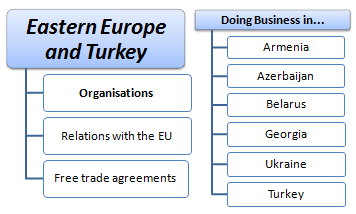

Module - Doing business in the countries of the CEFTA
Business in the CEFTA Countries (PDF).
- CEFTA
- Albania
- Bosnia and Herzegovina
- Macedonia
- Moldova
- Montenegro
- Serbia
- Kosovo
- Economic Relations of the CEFTA countries with the EU
- Trade Agreements of the CEFTA countries
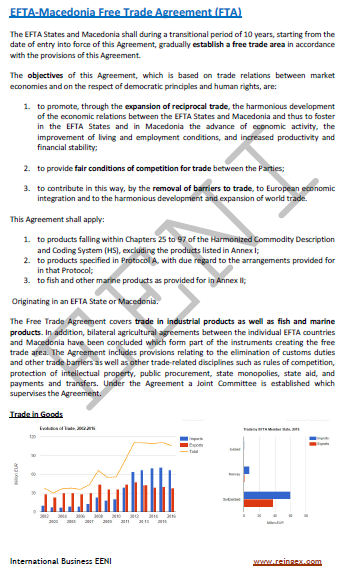
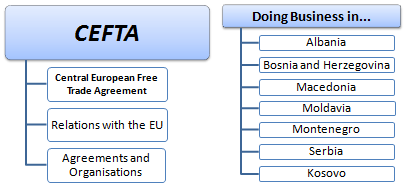
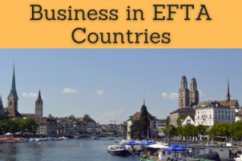
Module - Doing business in The EFTA Countries
Business in the EFTA States (PDF).
- European Free Trade Association (EFTA)
- Iceland
- Liechtenstein
- Norway
- Switzerland
- EFTA Free Trade Agreements

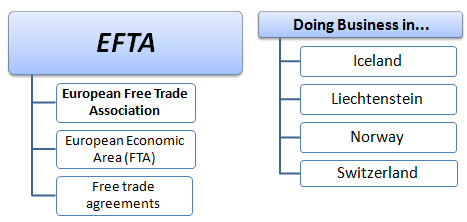
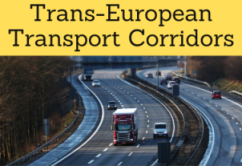
Module - Economic Corridors
- Atlantic Corridor
- Baltic-Adriatic Corridor
- North Sea-Baltic Corridor
- North Sea-Mediterranean Corridor
- Mediterranean Transport Corridor
- Eastern Europe-Eastern Mediterranean Transport Corridor
- Scandinavian-Mediterranean Transport Corridor
- Rhine-Alpine Transport Corridor
- Rhine-Danube Transport Corridor
- Strasbourg-Danube Transport Corridor
- Pan-European Corridor II
- Pan-European Corridor IX

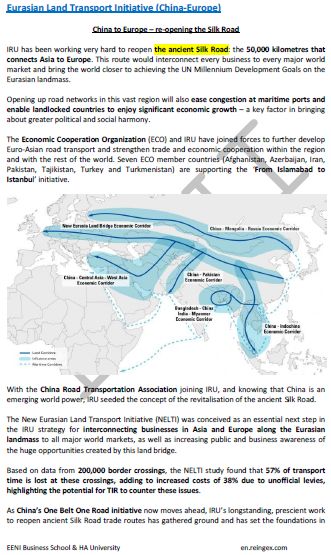
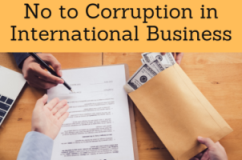
Module - No to Corruption in International Business (PDF).
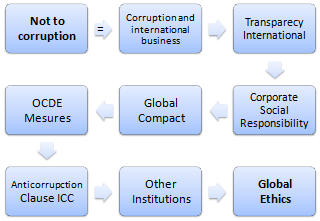
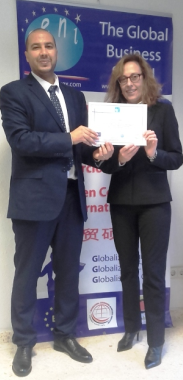
The student has to pass the online continuous assessment exercises for each subject as well as the final online Master's Thesis. If the professor considers that the minimum level has not been reached, he will guide the student to improve the quality of his exercises or thesis and send them back.
The most important thing for EENI is that the student correctly learns the Master's subjects and objectives.
Once all the exercises and thesis have been approved, the student obtains the “Diploma of Professional Master of Science (MSc) in International Business (MIB) specialization in Business in Europe” issued by EENI Global Business School.
In this case, it will be necessary to send us by mail (not valid by email) a certified photocopy of your diploma of Bachelor's Degree. This is necessary for the issuance of your diploma and not to enroll.
Those students who are not in possession of a Bachelor's Degree, may Enroll but receiving the “Advanced Certificate Program in Business in Europe.”
The Master in Business in Europe includes the Market Access Tool
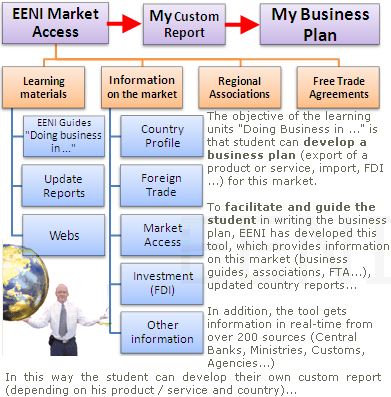
EENI European Students:
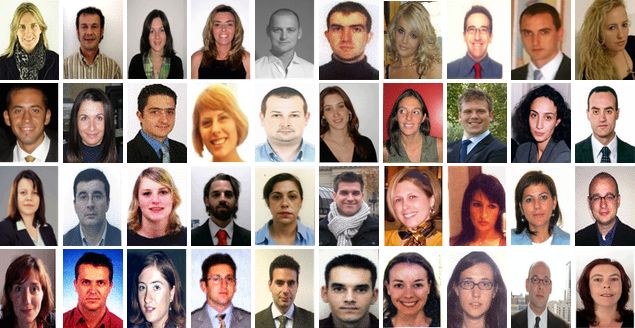
(c) EENI Global Business School (1995-2024)
We do not use cookies
Top of this page


